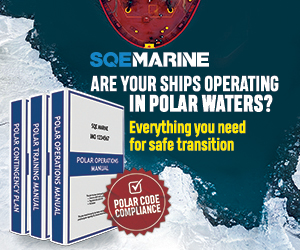In early October 2024, the International Maritime Organization’s Marine Environment Protection Committee (MEPC 82) advanced black carbon regulations.
The committee aims to develop mandatory regulations to significantly reduce black carbon emissions, with approval expected at MEPC 83 in April 2025 and implementation by 2026. Despite ongoing discussions since 2011 regarding the impact of black carbon from ships in the Arctic, emissions have doubled in the region, NGO Clean Arctic Alliance highlights.
The Clean Arctic Alliance highlights that black carbon, produced by the incomplete combustion of fossil fuels, has a climate impact more than 3,000 times that of CO2 over 20 years and accounts for about 20% of international shipping’s climate effect.
Black Carbon emissions
Black Carbon is a distinct type of carbonaceous material, formed only in flames during combustion of carbon-based fuels. The Guidance on best practices aims to assist ship operators/companies in their efforts to reduce Black Carbon emissions from their ships operating in or near the Arctic, while the guidelines for measuring, monitoring and reporting will help with data collection to support the development of relevant regulations and recommendations.
MEPC 82 adopted the following two resolutions prepared by PPR 11:
-
Resolution MEPC.393(82) on Guidance on best practice on recommendatory goal-based control measures to reduce the impact on the Arctic of Black Carbon emissions from international shipping
-
Resolution MEPC.394(82) on Guidelines on recommendatory Black Carbon emission measurement, monitoring and reporting.
The Alliance notes that the Arctic’s reflectivity has weakened by 24% since 1980, contributing to severe environmental changes and increased global warming. Transitioning to cleaner fuels could reduce black carbon emissions by 50-80%, making the swift implementation of regulations crucial.
 Moreover, during MEPC 82, two new emission control areas (ECAs) were established for the Canadian Arctic waters and the Norwegian Sea, effective March 2026. These ECAs aim to reduce nitrogen oxides, sulfur oxides, and particulate matter, indirectly benefiting black carbon emissions.
Moreover, during MEPC 82, two new emission control areas (ECAs) were established for the Canadian Arctic waters and the Norwegian Sea, effective March 2026. These ECAs aim to reduce nitrogen oxides, sulfur oxides, and particulate matter, indirectly benefiting black carbon emissions.
However, the Clean Arctic Alliance emphasizes the need for a comprehensive Arctic-wide black carbon regulation to address unregulated emissions effectively.
Additionally, the Alliance expresses concern over the use of scrubbers, which allow ships to use high-sulfur fuels while discharging toxic wastewater, impacting marine environments.
Finally, the Clean Arctic Alliance advocated for urgent action to tackle pollution and biodiversity loss alongside climate change, highlighting the interconnected nature of these global crises.
To remind, the 76th session of the Marine Environment Protection Committee (MEPC 76) adopted the amendments to MARPOL Annex I (addition of a new regulation 43A) to introduce a prohibition on the use and carriage for use as fuel of heavy fuel oil (HFO) by ships in Arctic waters on and after 1 July 2024.


































































